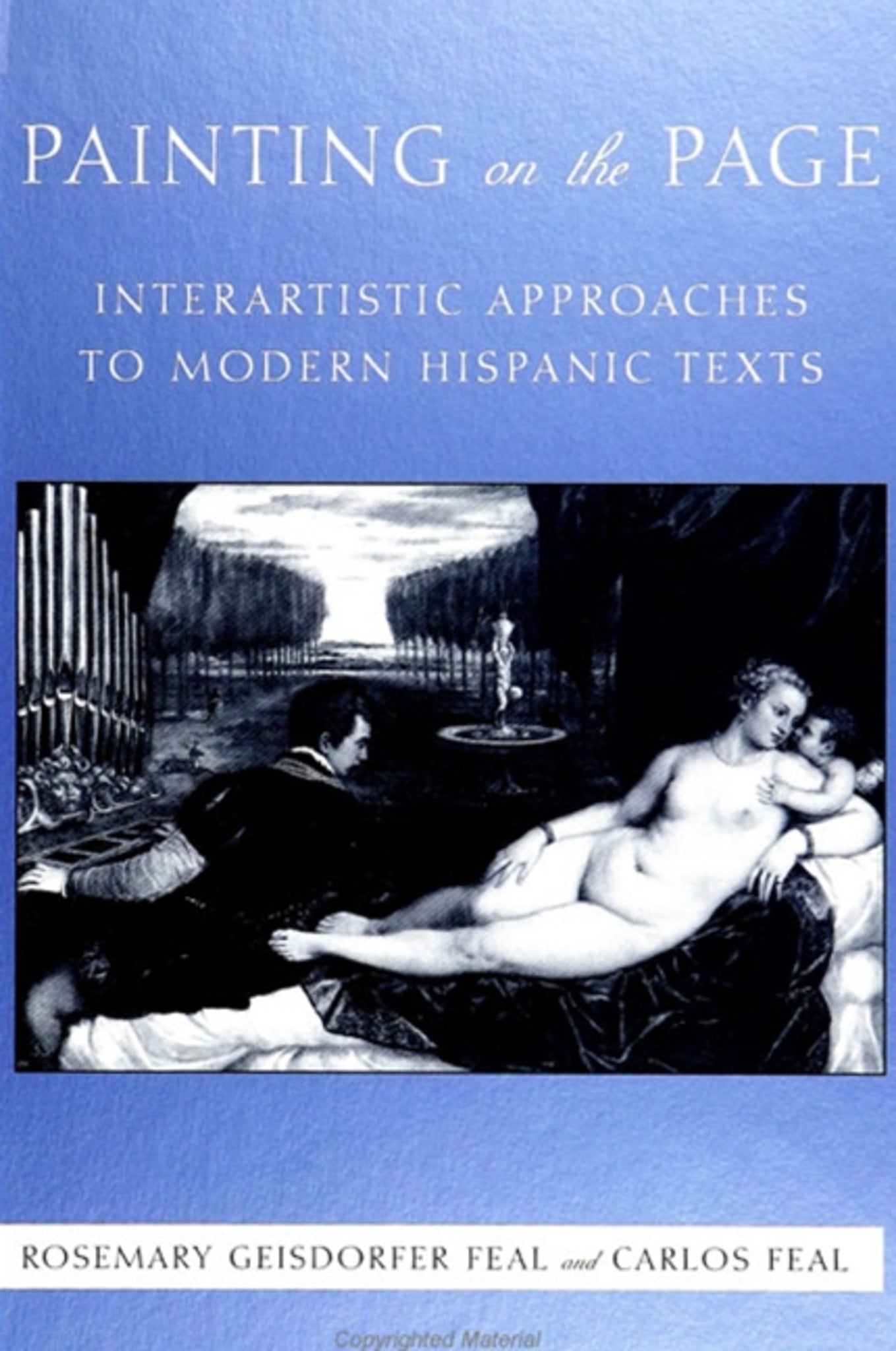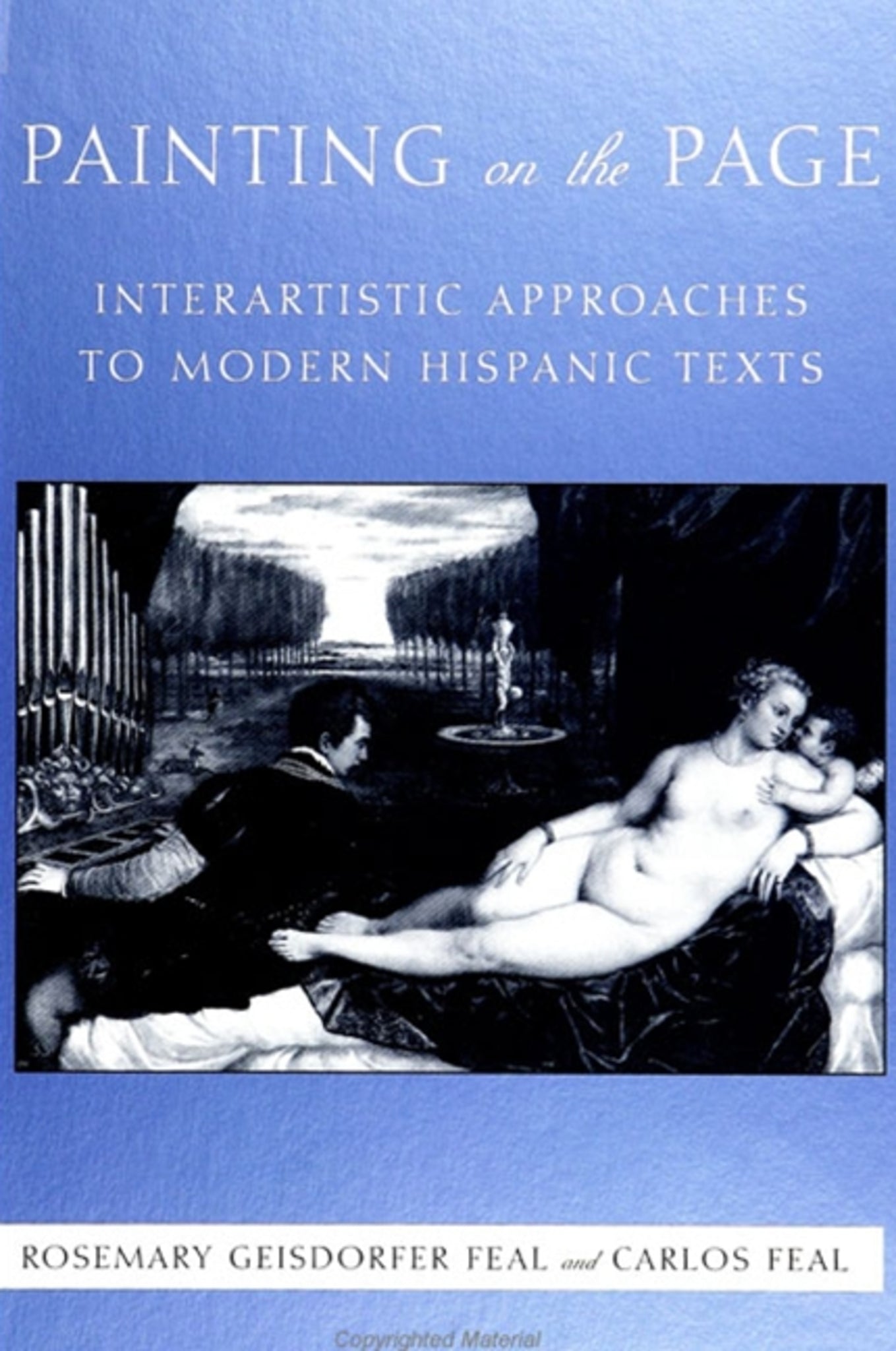We're sorry. An error has occurred
Please cancel or retry.
Painting on the Page

Some error occured while loading the Quick View. Please close the Quick View and try reloading the page.
Couldn't load pickup availability
- Format:
-
23 August 1995

Examines psychoanalysis, feminism, philosophy, and semiotics to examine late 19th- and 20th-Century Spanish and Spanish-American literature in relation to painting, and to larger questions of art theory and literary history.
Painting on the Page devises critical strategies that combine psychoanalysis, feminism, semiotics, and philosophy to examine late 19th- and 20th-Century Spanish and Spanish-American literature in relation to painting and to larger questions of art and literary history. The authors widen the theoretical lines to Hispanism, where approaches of this kind are rare. The book raises crucial concerns that relocate the art works and texts in question beyond the historical or aesthetic framework in which they have been traditionally placed.


"In this book the authors take on a severely understudied aspect of Hispanic letters: the inter-interpretation of visual and literary arts. Such studies as exist tend to be brief and superficial; this book offers a serious, major contribution to this growing area of interest, and they should be congratulated for the effort they put into this pioneering task. I am likewise intrigued by the idea of collaboration—both the kind of interdisciplinary collaboration that is the substance of their analysis (visual arts analyzing literature, and literature as a reading of visual arts), and the dual authorship of the book itself. Collaborative efforts in the humanities are relatively rare, and they offer intriguing possibilities for innovative joint and dialogic work." — Debra A. Castillo, Cornell University
"This book is a timely and fascinating introduction to the rich interartistic tradition in cultures of Spanish-speaking peoples. The originality of its topic is one of its best features. Many studies on literature and art use broad brush strokes to relate the two, often sidestepping important contextual considerations. On the other hand, ekphrastic studies often concentrate on one poem, or a single author's works. On the contrary, Painting on the Page, while concentrating on close textual readings of individual works, covers a broad cultural spectrum with excellent results." — Lou Charnon-Deutsch, State University of New York at Stony Brook
List of Figures
Preface
Acknowledgments
1. Reflections on the Mirrored Room: From Work to Word
2. The Tempatation of Saint Julian in Emilia Pardo Bazan's The House of Ulloa: Bosch, Goya, and Spain's Fin de Siecle
3. All the Worl's a Museum: The Marquis of Bradomin's Textual Exhibition
4. The Infinite Progression: Love and Art in Prelude to Pleasure by Pedro Salinas
5. Male (De)Signs: Art and Society in Luis Martin-Santos
6. Exiled in The Garden of Earthly Delights: From Hieronymus Bosch to Francisco Ayala
7. Visions of a Painted Garden: Jose Donoso's Dialogue with Art
8. In Ekphrastic Ecstasy: Mario Vargas Llosa as the Painter of Desire
9. Dada at the Tropicana: Guillermo Cabrera Infante and Readymade Art
Epi(dia)logue
Notes
Works Cited
Index



